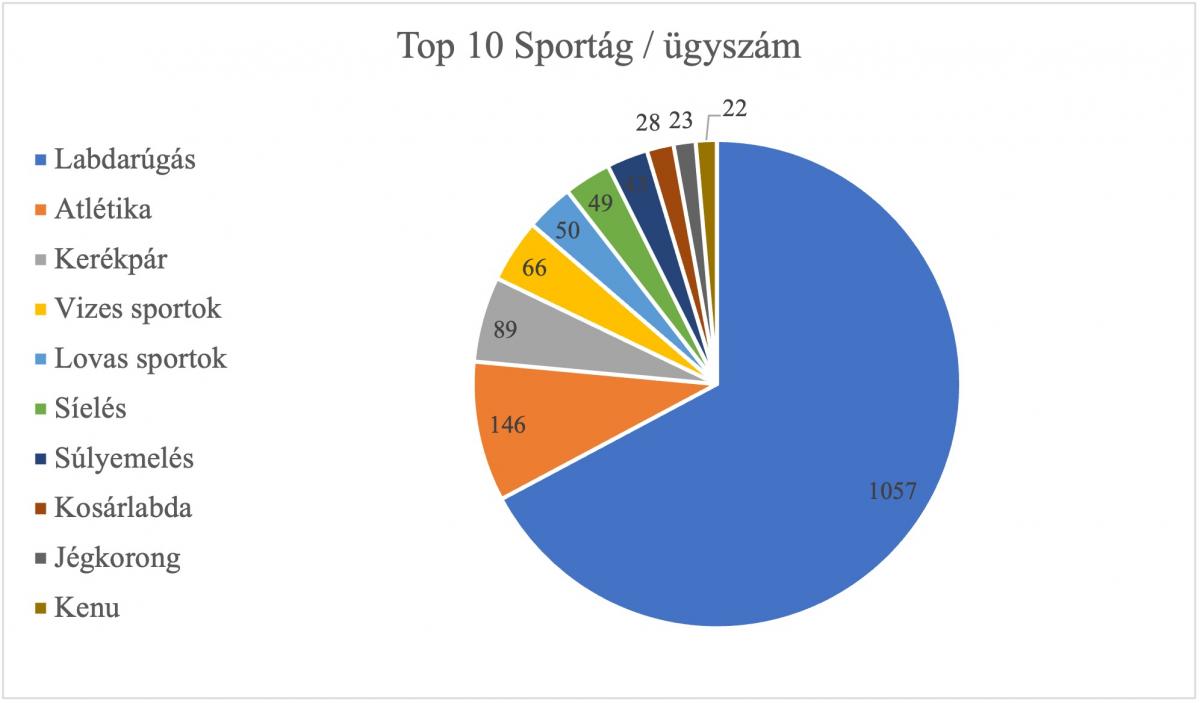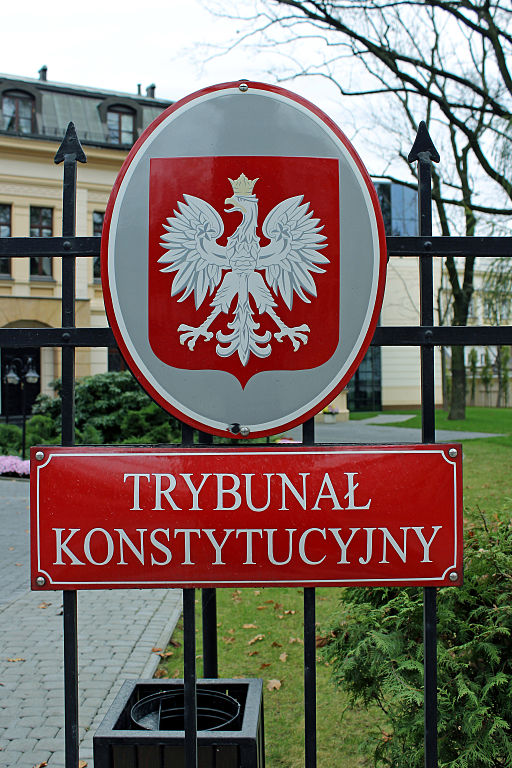Steps Towards a Reformed Financial Criminal Law in Hungary
 With Hungary’s accession to the European Union, the national and European budgets got into considerably closer contact with each other. On the other hand, we should also see and note that after the accession, the practice of budget fraud related to acquisitions within the EU has evolved. These crimes included various VAT-related frauds such as accepting pro forma invoices related to domestic sales activities and other economic activities related to acquisitions and sales within the Community. In the second part of our series on budget fraud in Hungary, we focus on the effective Hungarian regulation. Read more… (Petra Ágnes Kanyuk)
With Hungary’s accession to the European Union, the national and European budgets got into considerably closer contact with each other. On the other hand, we should also see and note that after the accession, the practice of budget fraud related to acquisitions within the EU has evolved. These crimes included various VAT-related frauds such as accepting pro forma invoices related to domestic sales activities and other economic activities related to acquisitions and sales within the Community. In the second part of our series on budget fraud in Hungary, we focus on the effective Hungarian regulation. Read more… (Petra Ágnes Kanyuk)


 The protection of the European Union’s financial interests holds a prominent place within the EU’s institutional framework, as is historically evident from the inclusion in EU primary law of the requirement that Member States ensure their effective protection, equivalent to that reserved for their national counterparts. As regards the Hungarian regulation, on the road leading to the establishment of the legal definition of budget fraud currently in force in the new Criminal Code, the effective protection of the budget of the EU or EC as a need was the most pronounced among the factors which brought about the formulation. In the following, we aim to summarise the outline of the development of budget fraud in Hungary in two parts.
The protection of the European Union’s financial interests holds a prominent place within the EU’s institutional framework, as is historically evident from the inclusion in EU primary law of the requirement that Member States ensure their effective protection, equivalent to that reserved for their national counterparts. As regards the Hungarian regulation, on the road leading to the establishment of the legal definition of budget fraud currently in force in the new Criminal Code, the effective protection of the budget of the EU or EC as a need was the most pronounced among the factors which brought about the formulation. In the following, we aim to summarise the outline of the development of budget fraud in Hungary in two parts. 
 The Advocate General, in his Opinion delivered on 16 December 2021, proposes that the Court allow the appeal brought by Ireland and annul the Commission’s decision declaring aid which Luxembourg granted to Fiat as being incompatible with the internal market.
The Advocate General, in his Opinion delivered on 16 December 2021, proposes that the Court allow the appeal brought by Ireland and annul the Commission’s decision declaring aid which Luxembourg granted to Fiat as being incompatible with the internal market. 
 In a resolution adopted on 21 October, the European Parliament (EP) declared the Constitutional Tribunal of Poland as not only “lacking legal validity and independence” but also “unqualified to interpret the Constitution of Poland”. This scathing denunciation comes as an answer to the 7 October decision of the Constitutional Tribunal that found the provisions of the Treaty on European Union (TEU) incompatible with the Polish Constitution on multiple grounds, thus posing a direct challenge to the established principle of the primacy of EU law.
In a resolution adopted on 21 October, the European Parliament (EP) declared the Constitutional Tribunal of Poland as not only “lacking legal validity and independence” but also “unqualified to interpret the Constitution of Poland”. This scathing denunciation comes as an answer to the 7 October decision of the Constitutional Tribunal that found the provisions of the Treaty on European Union (TEU) incompatible with the Polish Constitution on multiple grounds, thus posing a direct challenge to the established principle of the primacy of EU law. 
 The Department of Financial Law and Public Management of the Faculty of Law of the University of Debrecen has had a scientific relationship with the Institute of Financial Law of the Polish Katolicki Uniwersytet Lubelski for several years. Thanks to the established network of contacts, several joint tax law research projects and professional events took place over the years. The Faculty of Law of the University of Debrecen is also involved in the CEEPUS mobility cooperation titled “KULTAX Financial and Tax Law in Central Europe”, initiated by the Polish partner university. The most recent conference, held on 21 May 2021, discussed a topical issue, “Financial Regulation in the Times of the COVID-19 Pandemic”.
The Department of Financial Law and Public Management of the Faculty of Law of the University of Debrecen has had a scientific relationship with the Institute of Financial Law of the Polish Katolicki Uniwersytet Lubelski for several years. Thanks to the established network of contacts, several joint tax law research projects and professional events took place over the years. The Faculty of Law of the University of Debrecen is also involved in the CEEPUS mobility cooperation titled “KULTAX Financial and Tax Law in Central Europe”, initiated by the Polish partner university. The most recent conference, held on 21 May 2021, discussed a topical issue, “Financial Regulation in the Times of the COVID-19 Pandemic”. 
 The right to have access to public services (in EU terminology ’services of general interests’, SGIs and ‘services of general economic interests’, SGEIs) is of crucial importance for citizen. It has also been confirmed by the Charter of Fundamental Rights of the European Union. This right involves the requirement for establishing an effective consumer protection regime both at the national and the EU level. Due to the evolution of the legal framework, the EU is an important supranational actor in the regulation of public services today. The paper analyses the evolution of consumer protection in this field from the very beginning stage of the European integration until today, with a special focus on secondary legislation of the European Union aiming at liberalization in the energy sector.
The right to have access to public services (in EU terminology ’services of general interests’, SGIs and ‘services of general economic interests’, SGEIs) is of crucial importance for citizen. It has also been confirmed by the Charter of Fundamental Rights of the European Union. This right involves the requirement for establishing an effective consumer protection regime both at the national and the EU level. Due to the evolution of the legal framework, the EU is an important supranational actor in the regulation of public services today. The paper analyses the evolution of consumer protection in this field from the very beginning stage of the European integration until today, with a special focus on secondary legislation of the European Union aiming at liberalization in the energy sector. 
 Nowadays, criminal law inspired by the European Union has evolved into a significantly developing discipline and the legislations of the Member States must comply with European requirements. The importance that all legal professionals have proper knowledge in this special area of interaction between criminal law and EU law cannot be stressed enough in the ambit of the current situation, especially in light of the fact that the EU is proceeding towards the realisation of the single area of justice. In the following, we aim to summarise the milestones in the development of European criminal law in two parts.
Nowadays, criminal law inspired by the European Union has evolved into a significantly developing discipline and the legislations of the Member States must comply with European requirements. The importance that all legal professionals have proper knowledge in this special area of interaction between criminal law and EU law cannot be stressed enough in the ambit of the current situation, especially in light of the fact that the EU is proceeding towards the realisation of the single area of justice. In the following, we aim to summarise the milestones in the development of European criminal law in two parts.